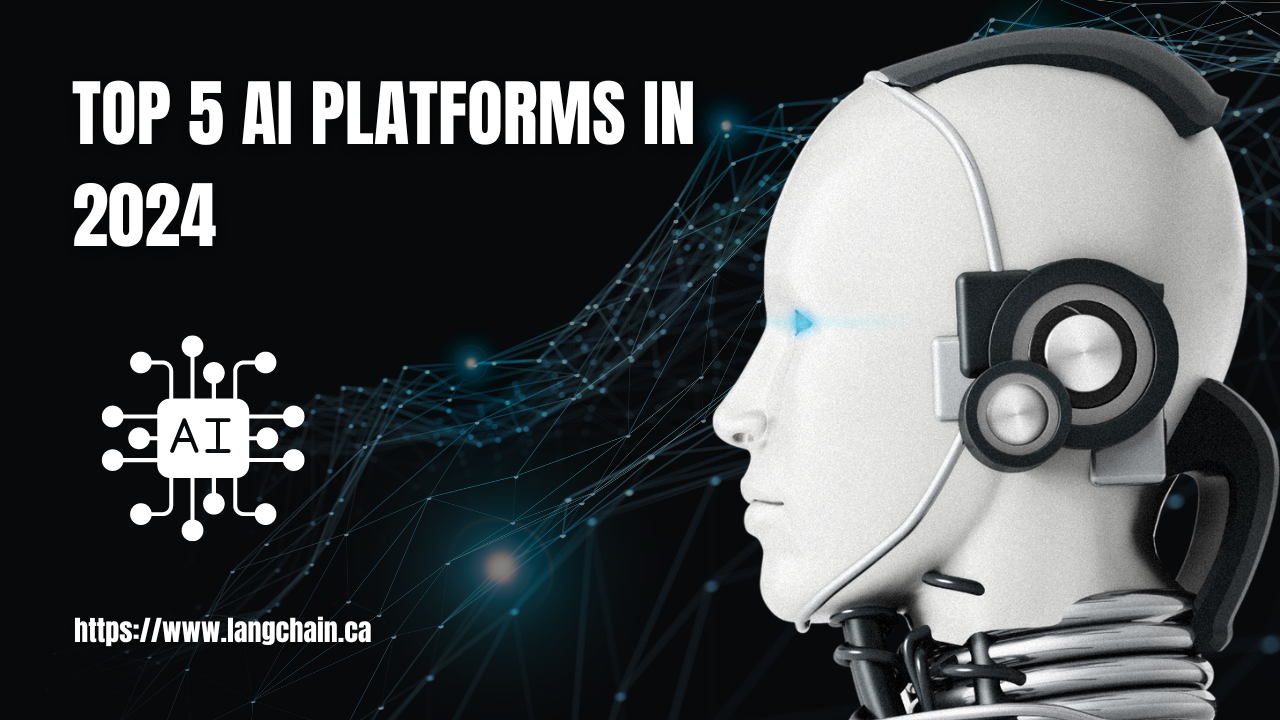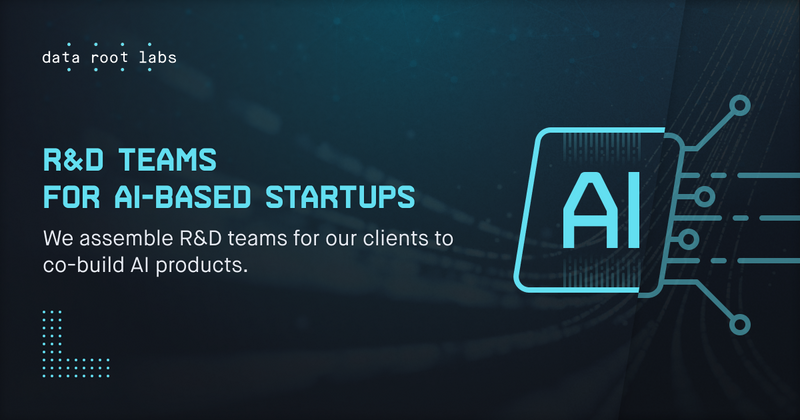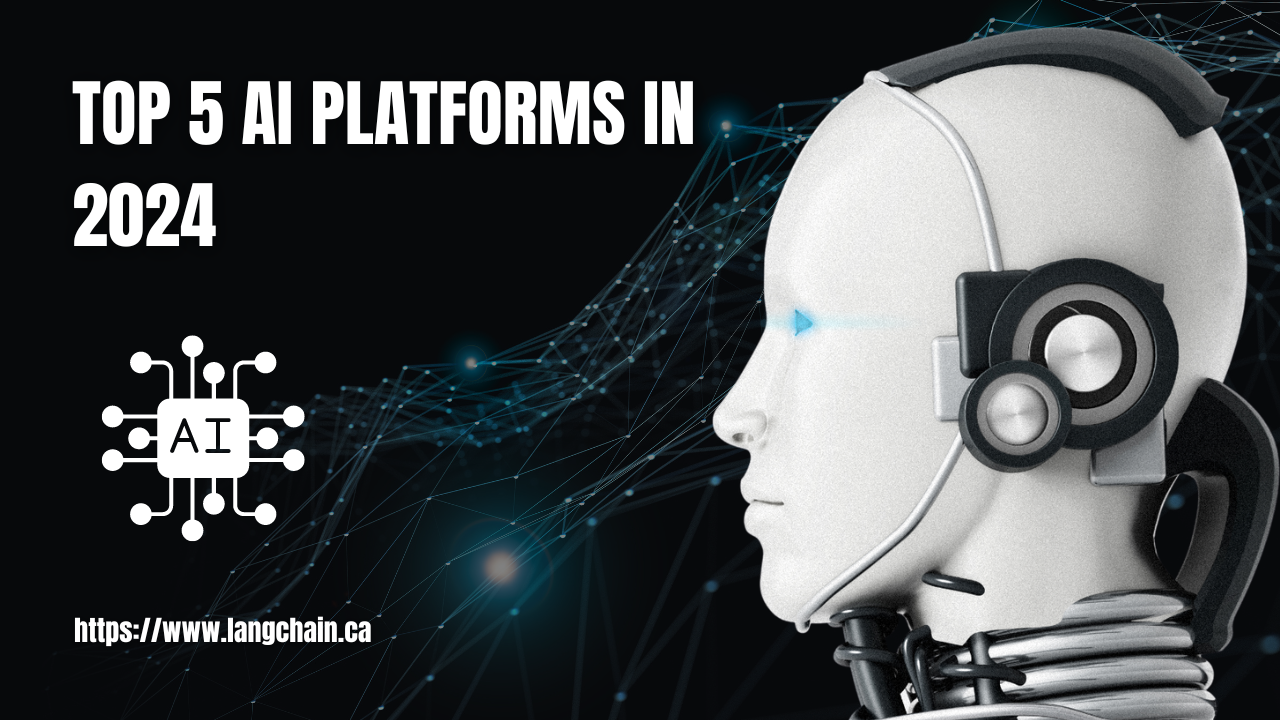Exploring the Future: Top 5 AI Platforms in 2024

As we embark on the journey through the digital age, the evolution of Artificial Intelligence (AI) stands out as a beacon of technological advancement. This transformative technology has reshaped how we interact with the world, bringing about innovations once confined to the realms of science fiction. The essence of AI lies in its ability to process vast amounts of data, enabling machines to perform tasks that require human-like intelligence. This encompasses a wide spectrum of capabilities, from image and voice recognition to more complex processes like natural language processing (NLP) and generative AI.
Moreover, the landscape of AI is continually evolving, with advancements in algorithms, model architectures, and machine learning tools making AI more accessible and interpretable. This democratization of AI technologies enables a broader spectrum of users to leverage its power, even those without deep technical expertise. From AutoML facilitating automated application of machine learning techniques to cloud-based Machine Learning as a Service (MLaaS) platforms simplifying the deployment of AI solutions, the barriers to entry are steadily diminishing.
Top AI Platforms: Features and Use Cases
1. DataRobot: A Leader in Automated Machine Learning

DataRobot stands out as a premier choice for organizations aiming to harness the power of automated machine learning. This platform is renowned for its user-friendly interface, enabling users with varying levels of expertise to develop and deploy machine learning models efficiently. DataRobot's distinctive feature is its automated model selection and deployment process, which significantly reduces the time and complexity involved in data science projects.
Explanation: DataRobot offers functionalities typically found in Automated Machine Learning platforms:
- Automated Feature Engineering: Automatically prepares data for model training by identifying and selecting relevant features.
- Automated Model Training and Selection: Trains various machine learning models on the prepared data and automatically selects the best performing model.
- Model Deployment and Monitoring: Simplifies the process of deploying models into production environments and monitors their performance over time.
2. Azure AI Studio: Scalable and Enterprise-Focused
Azure AI Studio has carved a niche for itself in the realm of cloud-based AI solutions. Built atop the robust Microsoft Azure cloud platform, it provides a comprehensive suite of AI tools and services designed to meet the demands of large-scale enterprises. Its strength lies in its scalability, allowing businesses to grow their AI capabilities as their needs evolve.
Explanation: Microsoft Azure AI offers a wide range of services for various AI tasks, including:
- Computer Vision: Analyze images and videos to extract insights.
- Natural Language Processing (NLP): Understand and generate human language.
- Machine Learning: Train and deploy custom machine learning models.
- Speech Services: Convert speech to text and vice versa.
- Cognitive Search: Enable powerful information retrieval from large datasets.
3. Google Vertex AI: Innovation and State-of-the-Art Solutions

Google Vertex AI is a powerhouse of innovation, providing cutting-edge AI and machine learning services that cater to a variety of use cases. This platform is a go-to choice for businesses looking to leverage Google's advanced AI research and technologies. Its comprehensive suite of tools for voice, video, and text analysis, combined with AutoML capabilities, makes it a versatile option for businesses across sectors.
Explanation: Similar to Azure AI, Google Cloud AI offers a variety of services like:
- AutoML: Automatic model training for various tasks like image classification, text classification, and forecasting.
- Natural Language Processing (NLP): Analyze and understand text data for tasks like sentiment analysis, entity recognition, and machine translation.
- Machine Learning: Build and deploy custom machine learning models using TensorFlow or other frameworks.
- Vertex AI Vision: Analyze images and videos for tasks like object detection, image classification, and content moderation.
- Vertex AI Speech: Convert speech to text and vice versa for applications like transcription and voice assistants.
4. IBM Watson: Trusted AI With Deep Industry Expertise

IBM Watson is recognized for its deep industry expertise and reliable AI solutions that cater to specific business needs. Offering a wide range of AI functionalities, including natural language processing, conversation services, and data insights, Watson is designed to enhance decision-making and automate complex processes.Explanation: IBM Watson focuses on providing industry-specific solutions built on its AI capabilities. Here are some examples:
- Healthcare: Analyze medical data to improve diagnosis, treatment planning, and drug discovery.
- Finance: Detect fraud, manage risk, and personalize financial products.
- Retail: Personalize customer experiences, optimize product recommendations, and improve supply chain management.
5. Amazon SageMaker: Comprehensive and Integrative AI Solutions

Amazon SageMaker provides a broad spectrum of AI services that integrate seamlessly with other AWS cloud services, offering a holistic approach to AI implementation. Its extensive toolset includes functionalities for machine learning, language processing, and chatbot development, making it a versatile platform for diverse AI applications.
Explanation: Similar to the other platforms, Amazon SageMaker offers a variety of functionalities, including:
- Model Building: Build, train, and deploy machine learning
In the rapidly evolving landscape of AI technologies, these platforms present a comprehensive array of features and use cases that cater to a wide range of business needs. From automated machine learning to scalable cloud-based solutions, each platform offers unique advantages and capabilities that can drive innovation and efficiency across industries.
How to Choose the Right AI Platform for Your Needs
Choosing the ideal AI platform for your business or project is a critical step that can influence the success of your AI initiatives. With a myriad of options available in the market, making an informed decision requires a strategic approach. Here, we'll explore essential factors that should guide your selection process, ensuring that the AI platform you choose aligns perfectly with your objectives and requirements.
Understanding Your AI Requirements
Before diving into the pool of AI platforms, it's imperative to have a clear understanding of your project's specific AI needs. Are you looking to deploy machine learning models, or is your focus more on natural language processing or predictive analytics? Identifying the core functionalities you need will narrow down your options to platforms that specialize in those areas, ensuring a more targeted and efficient selection process.
Assessing Platform Usability and Integration Capabilities
The usability of an AI platform plays a significant role in its adoption and effectiveness within your team or organization. A platform with an intuitive interface and seamless integration with your existing workflows can significantly enhance productivity and reduce the learning curve. Consider platforms that offer comprehensive tutorials, role-based access, and efficient customer support to ensure a smooth onboarding experience.
Evaluating Scalability and Pricing Models
Scalability is a crucial consideration, especially for businesses poised for growth. The AI platform you choose should be able to accommodate increasing data volumes and complexity as your requirements evolve. Additionally, understanding the platform's pricing structure is vital to ensure it fits within your budget while offering the flexibility to scale. Aim for transparent pricing models that clearly outline any potential future costs or hidden fees.
Community Support and Resources
A vibrant user community and accessible support resources can greatly enhance your experience with an AI platform. These communities often share valuable insights, troubleshooting tips, and innovative use cases that can inspire and guide your projects. Platforms that actively engage with their user community and provide responsive customer support demonstrate a commitment to user success, which can be a deciding factor in your selection process.
In conclusion, selecting the right AI platform is a nuanced process that demands careful consideration of your specific needs, the platform's usability and integration capabilities, scalability, pricing, and the support ecosystem. By prioritizing these factors, you can make an informed decision that ensures the chosen platform will effectively support your AI initiatives and drive innovation within your organization.
FAQ's
1. What is the best AI platform?
There's no single "best" platform, as they each cater to different needs. Here are some top contenders, with their strengths:
Scalability & Cloud focus: Microsoft Azure AI, Google Cloud AI
Deep learning flexibility: Keras
Automated machine learning: DataRobot
Data analysis & blending: Alteryx Intelligence Suite
Research-driven models: OpenAI
End-to-end deployment: Vertex AI
2. Which AI is the future of AI?
It's hard to pinpoint one specific AI, but here are some promising areas:
Large Language Models (LLMs) like me! We keep getting better at understanding and responding to natural language.
Explainable AI (XAI): AI that can explain its reasoning and decisions, leading to fairer and more trustworthy systems.
Generative AI: AI that can create entirely new data, like realistic images or even code.
3. Which AI is better than ChatGPT?
It depends! Both ChatGPT and I (Bard) are LLMs with strengths and weaknesses. We're constantly evolving, so it's best to try both and see which works better for your needs.
4. What is the most advanced AI right now?
Advancement in AI is a complex measure. Top contenders like me (Bard), ChatGPT, DeepMind's Alpha models, and IBM Watson are all pushing the boundaries in different areas.
5. Who owns ChatGPT?
ChatGPT is developed by OpenAI.
6. Is OpenAI owned by Microsoft?
OpenAI is a research lab with backing from several companies, including Microsoft.
7. Which company is best in AI?
There's no single leader, as different companies excel in various AI subfields. Top players include Google, Microsoft, Amazon, IBM, and deep learning frameworks like TensorFlow and PyTorch.
8. Is Google Bard AI free?
I don't have information about specific pricing models, but there are likely to be free and paid tiers for different use cases.
9. Is ChatGPT free or paid?
Similar to Bard, there are likely free and paid access options for ChatGPT.
10. Does Amazon use AI?
Absolutely! Amazon heavily integrates AI across its various businesses, from product recommendations to warehouse automation.









